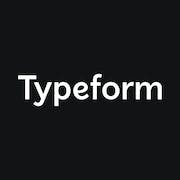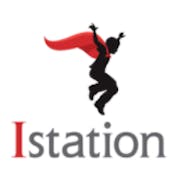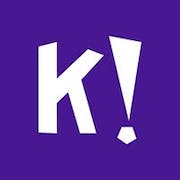Introduction to Assessment Software
Are you in search of reliable assessment software that can streamline your hiring process? Look no further than this buyer's guide that provides you with all the necessary information to make an informed decision! With so many options available on the market, selecting the right assessment software can be a daunting task. To help you through the process, we've researched and tested various assessment software options to create a comprehensive guide. Whether you're a small business owner or an HR manager of a large corporation, this guide has everything you need to know before making a purchase. From features and functionalities to pricing and customer support, we've got you covered! Let's dive in and find the perfect assessment software for your needs.
What is Assessment Software
Assessment software is a tool that allows organizations to measure the competencies, skills, and abilities of their employees and job applicants. This type of software is designed to streamline the assessment process, making it more efficient and effective for hiring managers and HR professionals.
One common use case for assessment software is in the hiring process. This technology makes it possible for recruiters to quickly and accurately assess the qualifications of job candidates. By using pre-employment tests and assessments, companies can easily determine which candidates possess the skills and competencies needed for specific roles, saving time and resources in the recruiting process.
Assessment software is also used for employee development and performance management purposes. By using tools like personality assessments, 360-degree feedback, and skills testing, companies can identify areas of strength and weakness in their workforce, and design targeted training and development programs to improve employee performance and productivity.
Here are some of the most common use cases for assessment software:
- Pre-employment testing and candidate screening
- Skills testing and training needs evaluation
- Employee engagement surveys
- Performance evaluation and talent management
- Succession planning and leadership development
Assessment software is widely used across a variety of industries, including healthcare, banking, retail, manufacturing, and technology. Companies of all sizes, from SMBs to global enterprises, can benefit from the use of assessment software to improve their hiring and retention processes, identify areas for development, and improve employee satisfaction and engagement.
Overall, assessment software is a powerful tool for optimizing human capital management. By leveraging the insights and data provided by assessment software, companies can make more informed decisions about their employees and hiring practices, leading to better business outcomes and a happier, more productive workforce.
Benefits of Assessment Software
Assessment software is an innovative tool that helps businesses to improve workflow and streamline processes. The software enables businesses to assess the skillset of employees, evaluate their performance, and identify areas of improvement. By leveraging the use of assessment software, businesses can significantly enhance the efficiency of their operations and boost productivity. Here are the main benefits of using assessment software:
- Data-Driven Insight: Assessment software provides valuable data analysis, which helps managers to identify training and development needs. Using this data, managers can make informed decisions about the allocation of resources and identify the skills gaps in their workforce.
- Streamlined Recruitment: Assessment software can be used by HR departments to attract, identify, and retain high-quality employees. The software can be used to analyze candidate skills and assess their suitability for specific job roles.
- Improved Employee Retention: When employees receive proper training and development opportunities, they are more likely to stay loyal to a company. By using assessment software, businesses can identify potential areas of improvement and offer personalized training and development plans.
- Enhanced Productivity: Assessment software can identify workflow inefficiencies and help businesses identify opportunities to improve productivity. By analyzing employee performance, businesses can improve communication, streamline processes, and increase efficiency.
- Reduced Costs: By streamlining training and development processes, assessment software can reduce the costs associated with employee turnover. Businesses can use this savings to invest in further skills development and provide ongoing training opportunities for their employees.
In conclusion, assessment software is an essential tool for businesses that want to boost productivity, identify skill gaps, and improve employee retention. By leveraging the benefits of assessment software, businesses can create a competitive advantage and drive long-term success.
Features of Assessment Software
Assessment software is essential for any organization that wants to make informed decisions about its workforce. Modern assessment software platforms offer a wide range of features that can help streamline the evaluation process, from performance reviews to skill assessments. In this section, we will highlight ten common features of assessment software that businesses can utilize to improve their workforce evaluation process.
- Customizable Assessments: A good assessment software should allow businesses to create customized assessments to fit their specific needs and requirements.
- Performance Tracking: An effective assessment software will enable businesses to track employee performance over time, providing insights on trends and areas that need improvement.
- 360-Degree Feedback: Allows for feedback from multiple perspectives, including peers, supervisors, and subordinates, to give a more comprehensive view of employee performance.
- Data Analytics: Assessment software should be able to provide detailed analytics on employee performance and other metrics, making it easier for management to make data-driven decisions.
- Skill Assessments: Many assessment software platforms provide skills testing capabilities, enabling businesses to evaluate the skills and knowledge of their employees.
- Mobile Support: With the rise of mobile devices, assessment software that includes mobile support is a must-have for many businesses.
- Integration with Existing Platforms: Assessment software that can integrate with existing platforms such as HRIS or other software tools can save time and enhance data accuracy.
- Automated Reporting: Automated reports can save businesses time and effort by automatically generating analysis reports, simplifying the analysis and decision-making process.
- Collaboration Features: Collaboration features such as team-based assessments or commenting capabilities can facilitate teamwork and encourage communication.
- Compliance with Industry Standards: An effective assessment software will comply with industry standards such as GDPR and other privacy laws, ensuring that businesses avoid legal issues down the road.
To conclude, assessment software is a powerful tool for improving the workforce evaluation process for any business. Choosing the right software depends on various factors, including customization options, mobile support, compliance with industry standards, among others. By paying attention to these features, businesses can streamline their HR processes, increase productivity, and make better-informed decisions.
Considerations of Assessment Software
Assessment software can be a valuable tool for businesses looking to improve their hiring processes, employee training initiatives, and overall organizational outcomes. However, choosing the right assessment software provider for your business requires careful consideration of several key factors.
- First and foremost, it’s important to evaluate the software’s accuracy and reliability. Look for providers that have a reputation for designing comprehensive assessment tools that are validated through independent research. These assessments should provide valuable insights into an individual’s skills, competencies, and personality traits, as well as their potential job performance.
- Secondly, consider the software’s ease of use and accessibility. A great assessment tool should be easy for both the administrator and the test-taker to navigate and complete. Some providers offer assessment software that can be integrated with existing HR systems, making it easier to manage results and track progress over time.
- Another important factor to consider is the flexibility of the assessments. Every business has unique hiring and development needs, so ensure that the software provider has a wide range of assessment options, including customized assessments tailored to specific job roles or skill sets.
- Scalability is also a crucial factor, especially for growing companies. Make sure to choose a software provider that can easily accommodate an increase in users or organizational expansion without compromising the quality or accuracy of the assessments.
- Lastly, consider the customer support and training offered by the provider. A good assessment software provider should offer ongoing support to help you fully understand and use the software effectively. This includes providing training for both administrators and test-takers, as well as offering responsive technical support should any issues arise.
In conclusion, buying assessment software requires careful consideration of several key factors. Accuracy and reliability, ease of use and accessibility, flexibility, scalability, and customer support are all important components to consider. By evaluating these factors, businesses can make informed decisions to help improve their hiring processes, training initiatives, and overall organizational outcomes.
Software Trends for Assessment Software
Assessment software has become an indispensable tool for businesses across various industries, helping them streamline and optimize their hiring and talent management processes. As we move into 2024 and beyond, several trends are likely to emerge in this field. One of the biggest trends is the use of AI-powered assessment tools, which can provide more efficient and accurate evaluations of candidates' skills and abilities, leading to better hiring decisions. Another emerging trend is the integration of assessment software with other HR and talent management tools, such as applicant tracking systems and performance management software. This can help businesses create a more holistic and data-driven approach to talent management. Additionally, there is a growing focus on incorporating remote and hybrid work capabilities into assessment software, allowing for more flexibility and accessibility in the evaluation process. As businesses continue to embrace digital transformation, the assessment software landscape is sure to evolve, with new innovations and advancements on the horizon.









